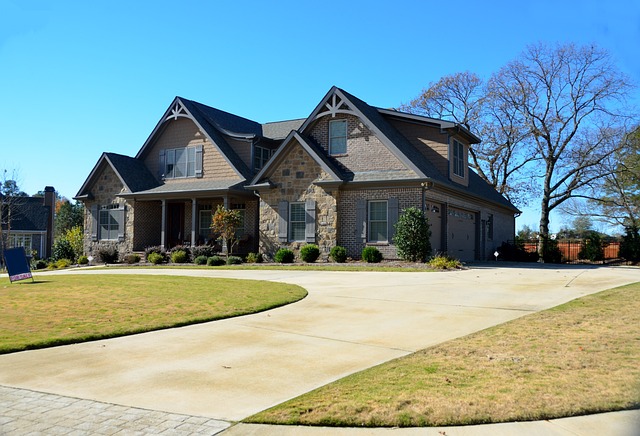Buying property in Singapore involves navigating a regulated market characterized by limited land, high demand, and strategic government policies that influence competitive and stable property prices. Prospective buyers must understand the implications of regulations like the Additional Buyer's Stamp Duty (ABSD) and Total Debt Servicing Ratio (TDSR), which differently affect locals and foreign investors. The market offers a range of real estate options, from private apartments and condominiums to executive condominiums and HDB flats, each with its unique characteristics and considerations. Buyers should familiarize themselves with the different property categories based on location, type, age, and condition, aligning them with their financial planning, including loan-to-value (LTV) ratios and mortgage options. Market trends and news are crucial for understanding how they can affect property values and investment opportunities in this dynamic real estate landscape within Singapore. The country's economic stability and robust regulatory framework make it an attractive destination for both domestic and international investors seeking residential properties or investment opportunities. With a scarcity of land and high demand, property values continue to escalate, emphasizing the importance of informed decision-making when purchasing property in Singapore. To successfully navigate this competitive landscape, leveraging local real estate expertise is essential, especially considering the legal requirements such as ABSD and TDSR. Strategic planning and insights into the local market can make buying property in Singapore a lucrative venture for investors.
Considering the intricacies of the Singapore property market, prospective buyers face a unique blend of opportunities and challenges. This article navigates the essential strategies for successful property investment in Singapore. We delve into the vibrant real estate climate, highlighting the government’s role and the diverse types of properties available. From condominiums to landed houses, understanding price trends and affordability is key. Strategic steps from setting clear objectives to finalizing purchases are outlined, with a focus on financing, legal considerations, due diligence, and post-purchase management. Leveraging technology enhances the property search and transaction process, ensuring informed decision-making in this dynamic market. Whether for residential living or investment purposes, these insights will guide you through the process of buying property in Singapore effectively.
- Understanding the Singapore Property Market Landscape
- – Overview of the Real Estate Climate in Singapore
Understanding the Singapore Property Market Landscape
Navigating the property market in Singapore requires a comprehensive understanding of its unique dynamics. Prospective buyers must first familiarize themselves with the limited land space and high demand that characterizes the city-state, influencing property prices to remain stable yet competitive. The Singaporean government exerts a significant influence on the property market through policies aimed at maintaining affordable housing while preventing overheating in the market. As such, regulations like the Additional Buyer’s Stamp Duty (ABSD) and Total Debt Servicing Ratio (TDSR) frame the purchasing process for both locals and foreigners differently.
To effectively purchase property in Singapore, one must also consider the diverse range of real estate options available, from private apartments and condominiums to executive condominiums and HDB flats. The market is segmented into various categories based on geographical location, property type, and the age and condition of the buildings. In this context, understanding the nuances of each category and how they align with personal financial planning, including loan-to-value (LTV) ratios and mortgage options, is crucial for making informed decisions when buying property in Singapore. Potential buyers should also stay abreast of market trends and news, as these factors can significantly impact property values and investment prospects within the Lion City’s vibrant real estate landscape.
– Overview of the Real Estate Climate in Singapore
Singapore’s real estate market is a dynamic and attractive sector for both local and international investors. Buying property in Singapore offers a unique blend of opportunities, with a range of residential options from luxury condominiums to spacious landed properties. The city-state’s strong economic performance has historically underpinned the resilience of its property market, despite global economic headwinds. The government’s strict regulatory framework ensures a stable and transparent environment for real estate transactions, which is conducive to both short-term gains and long-term investments. Foreign buyers are welcomed, with clear guidelines on eligibility and ownership rights. The market’s limited land space and high demand drive property values up, making strategic purchasing essential. Prospective buyers must consider factors such as property types, location, and the potential for capital appreciation when Buying Property In Singapore. Understanding the intricacies of the local real estate ecosystem is crucial for navigating this competitive landscape successfully.
When considering Buying Property In Singapore, it’s important to engage with reputable real estate agents or consultants who are well-versed in the nuances of the market. These experts can provide valuable insights into property trends, price movements, and the best areas to invest based on your financial goals and personal preferences. Additionally, familiarize yourself with the legal processes, including obtaining the necessary approvals for foreigners, understanding the Additional Buyer’s Stamp Duty (ABSD), and the Total Debt Servicing Ratio (TDSR) framework. A strategic approach combined with local knowledge can lead to a successful and rewarding property investment experience in this vibrant and cosmopolitan city.
Navigating the property market in Singapore necessitates a comprehensive approach, encompassing a deep understanding of its dynamics and regulatory framework. This article has outlined robust strategies for prospective buyers, ensuring they are well-equipped to make informed decisions when purchasing property in this vibrant city-state. From grasping the nuances of the real estate climate to strategizing on financing options and investment potential, the insights provided aim to empower you with the knowledge required to successfully enter the Singaporean property market. With careful consideration and strategic planning, buying property in Singapore can be a lucrative endeavor, yielding both financial returns and a foothold in one of the world’s most dynamic urban environments.
